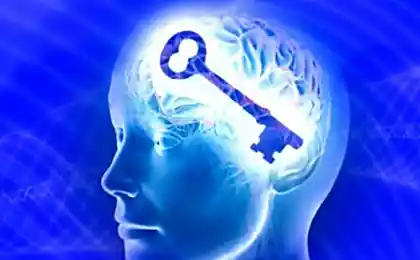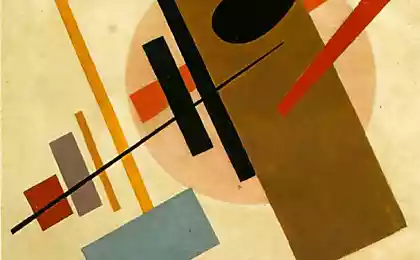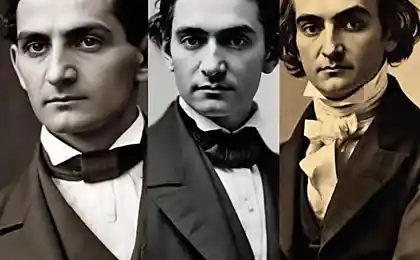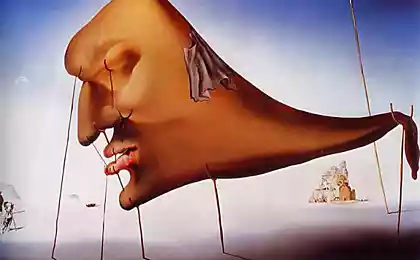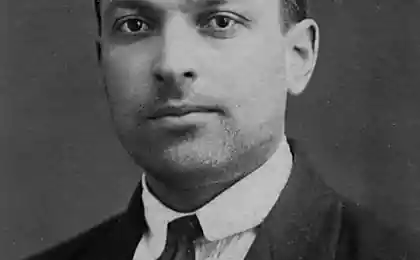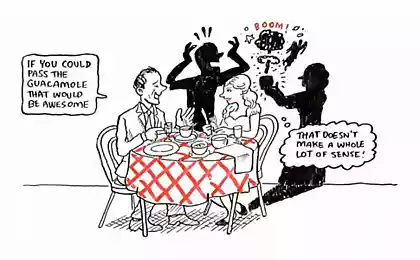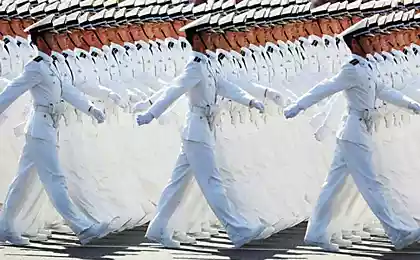605
Collective barbarism: Gustave Le Bon on the psychology of the masses
French scientist Gustave Le Bon in the late nineteenth century had a premonition of the coming social changes and catastrophes of the twentieth century, shook the intellectuals of the following generations. He first tried to understand the phenomenon of the mass: Lebon gave the crowd the integrity of the unique psychological characteristics and the ability to Express their unconscious will, he recognized her as the new actor in the social process. T&P publishes abstracts of lectures, dedicated to the founder of social psychology.
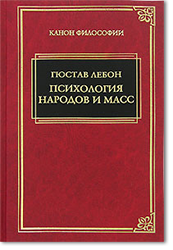
Gustave Le Bon, "Psychology of peoples and masses"
"Among the special properties that characterize the crowd, we meet, for example: impulsivity, irritability, inability to think, lack of reasoning and criticism, the exaggerated sensitivity, etc., which are observed in beings belonging to inferior forms of evolution, such as: in women, savages and children," wrote Gustave Le Bon in his "Psychology of peoples and masses," published in 1895. Today this quote seems melanochroi, rude or, at best, amusing. However, "lost the joy to write without footnotes" during the French thinker could produce a more powerful and aphorisms. Despite this, Gustave Le Bon is considered the founder of the psychology of crowds and, indeed, social psychology in General.
For a proper understanding of the views of Le Bon, it is important to soberly assess his racial theory, which is outlined in the first part of the book is "Psychology of peoples". Now it looks very archaic, but in the second half of XIX — early XX century, the racial-anthropological approach was considered absolutely normal tool, helping the researcher to explain how historical and social processes.
Like many other scientists of his time, Lebon builds a simple hierarchy of races, dividing humanity into primitive (e.g., people of Australia-Oceania), inferior (blacks), medium (Asian Nations) and, of course, the master race (Indo-European peoples). Race is understood as a historical unit, that is, a group of people United by common history and shared psychological characteristics — what Lebon called "spirit of race" or what we would now call mentality. For example, the British, and the French are determined not as a nation but as a race. Natural, that is anthropologically a pure race can exist only within communities of a primitive type. Historic race can be formed, provided that mixing ethnic groups more or less equal, are not too different to your anthropological and psychological Constitution and have long been under the influence of the same environment. The upper classes of the higher races differ considerably among themselves, while the lower classes more or less identical, and, in turn, can be equated to any of the representatives of an inferior race.
The main distinguishing feature of the crowds is the existence of a collective unconscious, which obliges the individuals in the crowd, to reject the individual consciousness and to subdue the mind and feelings of a single clamorously scientist argued that the culture, language, all social, political and educational institutions are derived from "race of the soul", the properties of which over time change very little. Remember Ivan Ilyin with his "Every nation deserves its government". If one race takes over from another, psychologically unrelated to race, for example, architectural style or religion, the latter undergo changes in accordance with the "soul" of the host race, sometimes transforming themselves beyond recognition. In addition to the impact of the collective soul of the development of any civilization, influenced by ideas which, in order to firmly enter into the structure of the psyche of each individual, are the way through the dogmas to the prejudices, which, in turn, become part of the racial "soul".
If the first part of the work of Lebon fairly typical, the second part, "the Psychology of the masses", was a breakthrough in the study of the psychology of groups. To Lebon to the question "What is a crowd?" there were three possible answers, in the apt words of Serge Moscovici, "is as much incomplete as universal".
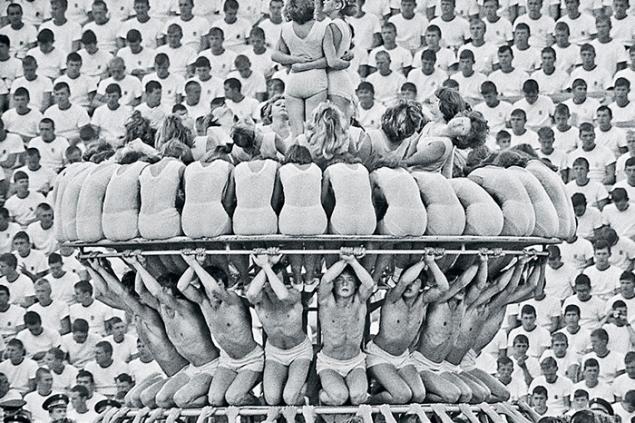
The mass ornament: Siegfried Kracauer the loss of individuality
The first answer involves the understanding of the crowd as a random accumulation of people, for example on the street or on the subway on the way to work. The subject of the science, this crowd is not because it carries an element of asocial behavior, because of the presence of its members outside the social institutions. It is impossible in this case to determine representatives of which groups and classes are individuals, and therefore impossible to study them. The second response was represented by the crowd as insane, possessed mass, as if this cluster consisted entirely of the mentally ill.
And finally, the third answer says about the criminal crowd. This approach is expressed most vividly in the works of the Italians Cesare Lombroso and of Scipio Siegel. For them, the psychology of the masses is part of the criminology and criminal anthropology. The crowd, in their understanding, is composed of people with antisocial tendencies, prone to the destructive instincts, cruelty and terrorist thinking. But this criminal aspect of the crowd opens the way to a politics in which already involved a variety of social movements: for example, anarchists or socialists.
Lebon, in turn, goes beyond these interpretations, offering a simple idea: the most distinctive feature of the crowds is the existence of a collective unconscious, which obliges the individuals in the crowd, to reject the individual consciousness and to subdue the mind and senses whole. Personal characteristics of the individual in the crowd have a negligible effect on its behavior — mechanisms of propagation of the sentiments are unchanged.
A crowd thinks in images and receptive to the miraculous, so is the leader who can "hypnotize" a crowd to present their ideas in a clear, specific, unambiguous images that do not require reasoning and does not allow debate, will be able to call it at least sympathy, and even a passionate fanatismo says about the "century of crowds" in contrast to the preceding period, the authorities of a small aristocracy. Mob rule, according to scientists, leads to chaos. Despite this, the researcher abandons the understanding of the crowd as an exclusively criminal gatherings. There is no doubt that the collective unconscious, as the unconscious in General, encourages the individual to commit vile, evil acts, because his actions are subordinated to the instincts. However, those same instincts and inability to reason can get the crowd to act heroically, as would an individual acting alone.
Such ideas, of course, appeared to Lebon, but much importance was not given to them because the crowd was not considered as an independent actor in the social and political processes, which would have specific psychological characteristics that clearly are not reducible to the blunt brutality and aggression. The causes of these special features is the consciousness of the irresistible force acquired by the individual in the crowd due to its abundance, infectiousness and susceptibility to suggestion. Based on this, the crowd characteristic impulsiveness, irritability, intolerance, exaggeration and one-sidedness of the senses, that is, its actions will be similar to the behaviour of a little petulant child. Moreover, this model will be to subdue the individual, he will not be guided by their personal and collective interests of the unconscious crowd.
A crowd thinks in images and receptive to the miraculous, so is the leader who can "hypnotize" a crowd to present their ideas in a clear, specific, unambiguous images that do not require reasoning and does not allow debate, will be able to call it at least sympathy, and even a passionate fanaticism. These feelings are the stronger, the more the leader has charisma. It can be as innate, personal charm, and acquired: people with lots of awe will heed the words of the famous General, covered with orders, than an unknown speaker. Plus, as noted by Lebon, "usually the leaders do not belong to the number of thinkers — people actions. They do not have the insight, since insight usually leads to doubt and inaction". Influencing the crowd through the assertion and repetition, the leader can give her ideas, which subsequently become established in the consciousness of the crowd as a guide to action.
Which saw Lebon, staring into his projected era of crowds? What dangers he represented, creating the concept of the psychology of crowds? In the first place Lebon saw in the crowd a threat to civilization. All these masses of people is "the collective barbarians," which carry with them the chaos and anarchy born of the unconscious. Such he is represented, for example, socialists or anarchists. Lebon is a pessimist, but a pessimist who still has hope. Many of his compatriots (for example, Joseph Arthur de Gobineau) spoke directly about the imminent death of European civilization. Lebon tries to warn and to warn that most clearly reflected on the last pages of the book, where the researcher in a few paragraphs draws the whole path of development of any civilization, from birth, through the heyday of chasing the dream, to decline and death.published
Source: theoryandpractice.ru

Gustave Le Bon, "Psychology of peoples and masses"
"Among the special properties that characterize the crowd, we meet, for example: impulsivity, irritability, inability to think, lack of reasoning and criticism, the exaggerated sensitivity, etc., which are observed in beings belonging to inferior forms of evolution, such as: in women, savages and children," wrote Gustave Le Bon in his "Psychology of peoples and masses," published in 1895. Today this quote seems melanochroi, rude or, at best, amusing. However, "lost the joy to write without footnotes" during the French thinker could produce a more powerful and aphorisms. Despite this, Gustave Le Bon is considered the founder of the psychology of crowds and, indeed, social psychology in General.
For a proper understanding of the views of Le Bon, it is important to soberly assess his racial theory, which is outlined in the first part of the book is "Psychology of peoples". Now it looks very archaic, but in the second half of XIX — early XX century, the racial-anthropological approach was considered absolutely normal tool, helping the researcher to explain how historical and social processes.
Like many other scientists of his time, Lebon builds a simple hierarchy of races, dividing humanity into primitive (e.g., people of Australia-Oceania), inferior (blacks), medium (Asian Nations) and, of course, the master race (Indo-European peoples). Race is understood as a historical unit, that is, a group of people United by common history and shared psychological characteristics — what Lebon called "spirit of race" or what we would now call mentality. For example, the British, and the French are determined not as a nation but as a race. Natural, that is anthropologically a pure race can exist only within communities of a primitive type. Historic race can be formed, provided that mixing ethnic groups more or less equal, are not too different to your anthropological and psychological Constitution and have long been under the influence of the same environment. The upper classes of the higher races differ considerably among themselves, while the lower classes more or less identical, and, in turn, can be equated to any of the representatives of an inferior race.
The main distinguishing feature of the crowds is the existence of a collective unconscious, which obliges the individuals in the crowd, to reject the individual consciousness and to subdue the mind and feelings of a single clamorously scientist argued that the culture, language, all social, political and educational institutions are derived from "race of the soul", the properties of which over time change very little. Remember Ivan Ilyin with his "Every nation deserves its government". If one race takes over from another, psychologically unrelated to race, for example, architectural style or religion, the latter undergo changes in accordance with the "soul" of the host race, sometimes transforming themselves beyond recognition. In addition to the impact of the collective soul of the development of any civilization, influenced by ideas which, in order to firmly enter into the structure of the psyche of each individual, are the way through the dogmas to the prejudices, which, in turn, become part of the racial "soul".
If the first part of the work of Lebon fairly typical, the second part, "the Psychology of the masses", was a breakthrough in the study of the psychology of groups. To Lebon to the question "What is a crowd?" there were three possible answers, in the apt words of Serge Moscovici, "is as much incomplete as universal".

The mass ornament: Siegfried Kracauer the loss of individuality
The first answer involves the understanding of the crowd as a random accumulation of people, for example on the street or on the subway on the way to work. The subject of the science, this crowd is not because it carries an element of asocial behavior, because of the presence of its members outside the social institutions. It is impossible in this case to determine representatives of which groups and classes are individuals, and therefore impossible to study them. The second response was represented by the crowd as insane, possessed mass, as if this cluster consisted entirely of the mentally ill.
And finally, the third answer says about the criminal crowd. This approach is expressed most vividly in the works of the Italians Cesare Lombroso and of Scipio Siegel. For them, the psychology of the masses is part of the criminology and criminal anthropology. The crowd, in their understanding, is composed of people with antisocial tendencies, prone to the destructive instincts, cruelty and terrorist thinking. But this criminal aspect of the crowd opens the way to a politics in which already involved a variety of social movements: for example, anarchists or socialists.
Lebon, in turn, goes beyond these interpretations, offering a simple idea: the most distinctive feature of the crowds is the existence of a collective unconscious, which obliges the individuals in the crowd, to reject the individual consciousness and to subdue the mind and senses whole. Personal characteristics of the individual in the crowd have a negligible effect on its behavior — mechanisms of propagation of the sentiments are unchanged.
A crowd thinks in images and receptive to the miraculous, so is the leader who can "hypnotize" a crowd to present their ideas in a clear, specific, unambiguous images that do not require reasoning and does not allow debate, will be able to call it at least sympathy, and even a passionate fanatismo says about the "century of crowds" in contrast to the preceding period, the authorities of a small aristocracy. Mob rule, according to scientists, leads to chaos. Despite this, the researcher abandons the understanding of the crowd as an exclusively criminal gatherings. There is no doubt that the collective unconscious, as the unconscious in General, encourages the individual to commit vile, evil acts, because his actions are subordinated to the instincts. However, those same instincts and inability to reason can get the crowd to act heroically, as would an individual acting alone.
Such ideas, of course, appeared to Lebon, but much importance was not given to them because the crowd was not considered as an independent actor in the social and political processes, which would have specific psychological characteristics that clearly are not reducible to the blunt brutality and aggression. The causes of these special features is the consciousness of the irresistible force acquired by the individual in the crowd due to its abundance, infectiousness and susceptibility to suggestion. Based on this, the crowd characteristic impulsiveness, irritability, intolerance, exaggeration and one-sidedness of the senses, that is, its actions will be similar to the behaviour of a little petulant child. Moreover, this model will be to subdue the individual, he will not be guided by their personal and collective interests of the unconscious crowd.
A crowd thinks in images and receptive to the miraculous, so is the leader who can "hypnotize" a crowd to present their ideas in a clear, specific, unambiguous images that do not require reasoning and does not allow debate, will be able to call it at least sympathy, and even a passionate fanaticism. These feelings are the stronger, the more the leader has charisma. It can be as innate, personal charm, and acquired: people with lots of awe will heed the words of the famous General, covered with orders, than an unknown speaker. Plus, as noted by Lebon, "usually the leaders do not belong to the number of thinkers — people actions. They do not have the insight, since insight usually leads to doubt and inaction". Influencing the crowd through the assertion and repetition, the leader can give her ideas, which subsequently become established in the consciousness of the crowd as a guide to action.
Which saw Lebon, staring into his projected era of crowds? What dangers he represented, creating the concept of the psychology of crowds? In the first place Lebon saw in the crowd a threat to civilization. All these masses of people is "the collective barbarians," which carry with them the chaos and anarchy born of the unconscious. Such he is represented, for example, socialists or anarchists. Lebon is a pessimist, but a pessimist who still has hope. Many of his compatriots (for example, Joseph Arthur de Gobineau) spoke directly about the imminent death of European civilization. Lebon tries to warn and to warn that most clearly reflected on the last pages of the book, where the researcher in a few paragraphs draws the whole path of development of any civilization, from birth, through the heyday of chasing the dream, to decline and death.published
Source: theoryandpractice.ru
Retro photo: Children of America, beginning of XX century
In the future, your screen will touch you in response.





